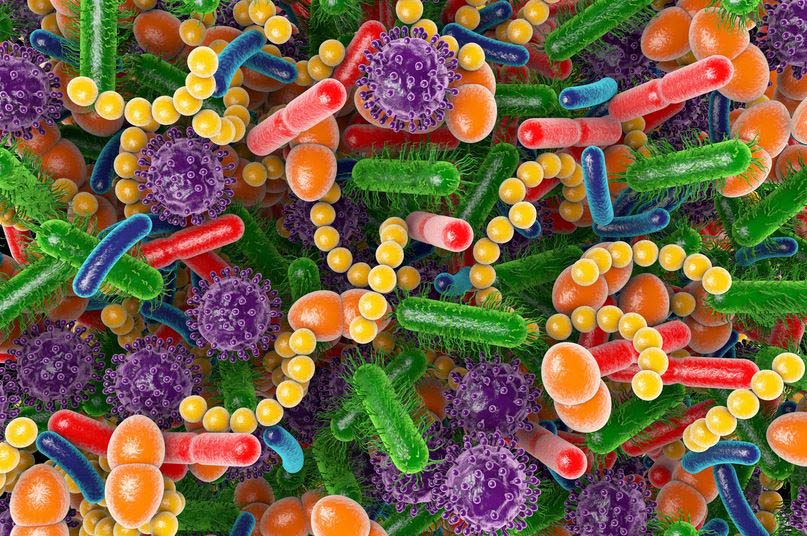What are the main Principals for Digestive Health and how can we achieve it. I love the saying “The food you eat can be either the safest and most powerful form of medicine or the slowest form of poison.” ― Ann Wigmore… and never a truer word was spoken, but even if we are eating the best food possible our digestion is the key to gaining the benefits of the food we eat. In our fast-paced, fast-food society we may have lost our connection between our health and the foods we eat. Here are some suggestions that might get you back in touch with your digestion and overall health.
Here are some Principals for Digestive Health
The first step in improving your digestive system is to improve the quality of the food that you eat. The more whole foods you eat the better digested it will be. A good breakfast containing high-quality protein and fat is critical, even if it is just yoghurt and berries in a smoothie, or some hard-boiled eggs or nut butter on sprouted whole-grain toast. Try taking a simple lunch rather than grabbing something on the go. Add white cheeses (feta ricotta Boccioni), or tuna and hard-boiled eggs to a salad, and add some crispy nuts and chicken salad. If you are out for dinner order simple grilled steak or grilled fish. Ask for a side salad dressing with olive oil and balsamic dressing or some steamed vegetables. Fried foods are the worst offender for our digestive health, so avoid them if at all possible.
Slow Down and Chew
This may sound silly but chewing your food thoroughly begins the digestive process, mixing food. The smaller the particles of food swallowed, the better it will be absorbed in the stomach and small intestine. Meaning that you can get more nutrition out of well-chewed meals. It doesn’t make sense to invest time and money into our food if we eat it too quickly and forget to chew it. So, take time with each meal and really focus on chewing (try 20 x each mouthful), and pause before taking another bite.
Don’t Forget to Breathe!
Another important digestive tip is to ‘switch’ to the nervous system (parasympathetic) that is responsible for releasing digestive enzymes. Taking 3 or 4 deep ‘belly’ breaths before you eat, can help to calm your nervous system and get your body into a “rest and digest” mode.
Add Foods to Stimulate Digestion
Eating enzyme-rich foods is a great way to aid our digestion. Good sources of enzymes come from tropical fruits like pineapple and papaya. Some teas like dandelion root tea, or lemon or apple cider vinegar in warm water are good to have before a meal to increase the digestive enzymes in our gut before a meal. Try a teaspoon of apple cider or a squeeze of lemon in warm water – this does not have to be overpowering just a slightly tart taste. Fermented foods such as tempeh and miso, along with sauerkraut, kimchi, plain yoghurt and kaffir will also help balance the bacteria in your gut and aid digestion.
Don’t Wash Your Food Down
Drinking too much fluid with your meals can mean that you dilute the concentration of stomach acid and other enzymes that are needed for proper digestion. So, to get the most out of your foods, it is best to avoid drinking a lot of fluid for ½ an hour before a meal and then not drink large amounts for 1 hour afterwards.
Further Principals for Digestive Health
- enjoy liberal amounts of fruits and vegetables for nutrient, prebiotic food
- consume foods such as bitter greens (rocket / endive/ red lettuce / watercress) and sour fruits (lemons / limes) to stimulate digestion
- eat fermented foods (yoghurt / sauerkraut / miso / Kimchi / kombucha) for probiotic effects
- avoid potential dietary irritants such as preservatives, smoked foods, charred foods, coffee and alcohol
- try and avoid processed, overcooked, leftover food
- eat mindfully – when eating, just eat. Avoid watching television, working, and reading while eating
- sit down and relax to eat – eat with family/friends/community Avoid eating when stressed Chew food thoroughly (try 20 x each mouthful!)
- avoid excessive liquid consumption with meals (sip with a meal – avoid lots of fluid for ½ before and 1 hour after so as not to dilute the digestive enzymes.
Eat until no longer hungry, not until full – “Hara Hachi bu” as the Japanese say – “eat until you are eight parts (out of ten) full”. If you follow these suggestions for Principals for Digestive Health– your digestion will thank you. Happy Eating (slowly)
You may also enjoy this post HERE

